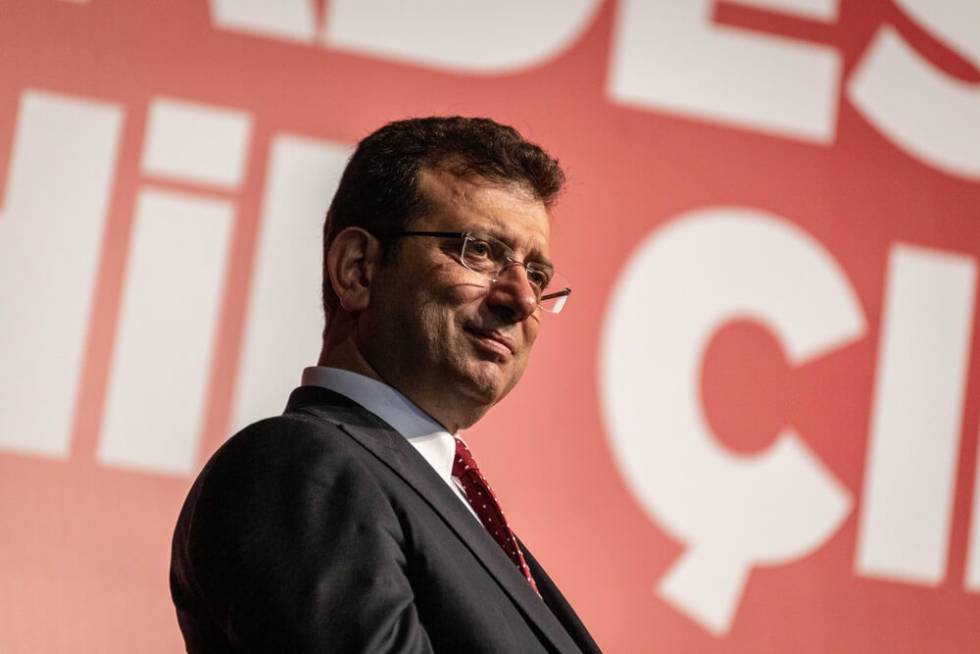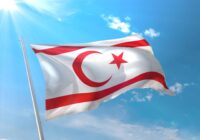If you flicked through the international media reaction to Turkey’s recent nationwide local elections, you could be forgiven for thinking that a political revolution had just occurred.
The victory of opposition candidates not only in the megalopolis of Istanbul and the capital, Ankara, but also in the third city, İzmir, as well as huge swathes of the rest of the country dominated headlines.
The message was clear: Turkish President Recep Tayyip Erdoğan had received a huge rebuke from his electorate only ten months after his decisive victory in the national elections. Then, he convincingly retained the presidency, fending off a concerted challenge from a broad opposition coalition named the Nation Alliance.
You can read the above narrative pretty much anywhere. What is more useful to an interested observer is to consider what has practically changed due to these elections and what this might tell us about the Turkish political landscape going forward.
The incumbents won
In fact, the election results were not as seismic as the international press would have the idle, skim-reading observer believe. That’s not to say they weren’t significant. But we should place these results in context.
First and foremost, let us examine the victory of the opposition Republican People’s Party (CHP) candidates in the mayoral elections in both Istanbul and Ankara.
This was not a victory over Erdoğan’s ruling Justice and Development Party (AKP), but rather the reelection of the incumbent mayors. Both Istanbul Mayor Ekrem Imamoğlu and Ankara Mayor Mansur Yavaş first won in the 2019 local elections. Those results were seismic. Imamoğlu took Istanbul for the opposition after 25 years of AKP rule.
Imamoğlu’s victory, especially, had real resonance in 2019. Istanbul is Erdoğan’s home turf. The Turkish leader made his name nationally as the mayor of the city from 1994 to 1998 before he became prime minister and then president. The loss of Turkey and indeed Europe’s biggest city felt symbolic. Erdoğan reacted by annulling the election result, which led to a rerun. Imamoğlu won the rerun with an increased majority.
Things took a darker turn a year later. In December 2020, the Court of Cassation handed Imamoğlu two-year, seven-month and 15-day prison sentences and a ban from politics. Note that the ban has not been implemented to date and echoes the courts’ treatment of Erdoğan’s in 1999.
While Imamoğlu was convicted of insulting public officials, Erdoğan was not only convicted but also imprisoned. At the time, the CHP was in power and its secular political system found Erdoğan guilty of reciting an Islamist poem at a political rally. In Turkey, history seems to revolve in circles. Many see Imamoğlu as a new leader in the Erdoğan mold.
Not only did the opposition impressively retain Istanbul and Ankara, but it also retained the mayoralty of İzmir. However, anyone who knows Turkey knows fully well that this is a non-story. İzmir has always been a CHP stronghold.
Victory for incumbents is a tendency in many parts of the world. Furthermore, candidates of the ruling national party tend to do badly in local elections worldwide. In a nutshell, the results of the Turkish elections are not exceptional and certainly not historic as the BBC and others claim.
Opposition revival?
The latest results might not be exceptional, but it is impressive that the opposition has bounced back after its humbling defeat in the 2023 national elections.
Coming on the centenary of the Turkish Republic, those elections had been billed by the coalition opposition Nation Alliance as a make-or-break moment. The opposition’s narrative was simple: If they couldn’t unseat Erdoğan, Turkish democracy would be lost forever. The coalition duly nominated Kemal Kılıçdaroğlu, a longtime CHP leader, as its presidential candidate. This uncharismatic leader had already lost elections to Erdoğan earlier and was a poor choice.
Despite an attempt to portray Kılıçdaroğlu as a humble man of the people, a mere civil servant who had come out of nowhere to attempt to unseat the “sultan,” the opposition’s campaign failed to ignite. Erdoğan won again, and the results were much the same as in many previous elections.
Such a lackluster performance could understandably have plunged the opposition into the doldrums of introspection and made it ineffective for years to come. Certainly, that would have been Erdoğan’s keen hope. The opposition’s strong performance in the local elections dashes Erdoğan’s hopes and is a significant achievement.
The CHP has fared like many opposition parties in midterm local elections in functioning democracies. Yet the key lesson for the opposition is simple: Personalities matter.
As many in the international media were also saying this week, both Imamoğlu and Yavaş are now seen as viable presidential candidates for 2028. For many political observers in Turkey, the reaction to that notion might understandably be: At last!
It was clear in the buildup to the 2023 presidential elections that other candidates were far more of a threat to Erdoğan than Kılıçdaroğlu. In particular, the charismatic Imamoğlu had a backstory that made him the perfect heir apparent to the Erdoğan throne. His campaign could have had the ring of a timeless fairy tale.
Thankfully for Erdoğan and the AKP, Imamoğlu was not the opposition candidate. In the last national election, the opposition did not understand what the AKP realized long ago: Personalities win elections. Erdoğan understands the power of personality. That is why he has maintained such a stranglehold over the AKP for so long and has pushed out many other major figures, such as former president Abdullah Gül and former prime minister Ahmet Davutoğlu — not only from office but also from the party.
Erdoğan has demonstrated that he is a serial winner. What the opposition needed in 2023, and will need in 2028, is someone who is also a winner — or at the very least, someone who is not seen as a loser. The local election results have offered them even more evidence of who might fit that role.
The biggest success of these local elections is that they reveal Turkish politics to be still competitive. Ironically, that is good for both incumbent and opposition parties. This might seem counter-intuitive in the zero-sum majoritarianism of Turkish democracy today, but ultimately, total consolidation of power is never good for the effective functioning of any state.
The opposition CHP has a long history of over-consolidation of power. The party could tell the ruling AKP a thing or two about where that road leads. It would be an error to imagine, as many in the international press do, that Turkish politics is simply divided between an oppressive regime and a liberal and democratic opposition. Everyone in Turkish politics has dirt on their hands. And yet democracy is still functioning if not thriving. That is good news for Turkey.
The views expressed in this article are the author’s own and do not necessarily reflect Fair Observer’s editorial policy.
Support Fair Observer
We rely on your support for our independence, diversity and quality.
For more than 10 years, Fair Observer has been free, fair and independent. No billionaire owns us, no advertisers control us. We are a reader-supported nonprofit. Unlike many other publications, we keep our content free for readers regardless of where they live or whether they can afford to pay. We have no paywalls and no ads.
In the post-truth era of fake news, echo chambers and filter bubbles, we publish a plurality of perspectives from around the world. Anyone can publish with us, but everyone goes through a rigorous editorial process. So, you get fact-checked, well-reasoned content instead of noise.
We publish 2,500+ voices from 90+ countries. We also conduct education and training programs
on subjects ranging from digital media and journalism to writing and critical thinking. This
doesn’t come cheap. Servers, editors, trainers and web developers cost
money.
Please consider supporting us on a regular basis as a recurring donor or a
sustaining member.
Will you support FO’s journalism?
We rely on your support for our independence, diversity and quality.










Comment